Discovery of Epithalon (Epithalamin)
- joelstephen1940
- Sep 28, 2025
- 3 min read
Epithalon (also called Epithalamin) is a synthetic tetrapeptide (Ala-Glu-Asp-Gly) derived from epithalamin, a natural peptide isolated from the pineal gland by Russian scientist Professor Vladimir Khavinson and his team in the 1980s. The pineal gland is known for producing melatonin, and researchers discovered that epithalamin (and later its synthetic version, Epithalon) had potential anti-aging and lifespan-extending effects.

Human Trials and Research
Several studies, primarily from Russian and Eastern European research, have explored Epithalon’s effects:
Anti-Aging & Longevity Studies (1990s-2000s)
Khavinson’s research suggested that Epithalon could restore melatonin production and extend cell lifespan by activating telomerase, the enzyme that repairs telomeres (protective caps on DNA that shorten with age).
A 2003 study on elderly patients showed improved immune function and reduced biological age markers.
Cancer Research (Limited Human Data)
Some studies suggested Epithalon could inhibit tumor growth, but human trials are scarce.
Clinical Use in Russia
Epithalon has been used in Russian clinics for age-related disorders, immune support, and metabolic regulation, but large-scale Western trials are lacking.
Potential Benefits of Epithalon
Telomere Lengthening – May slow cellular aging by activating telomerase.
Anti-Aging Effects – Improves skin elasticity, cognitive function, and energy levels in some users.
Melatonin Regulation – Supports sleep and circadian rhythms.
Antioxidant Properties – Reduces oxidative stress.
Possible Cancer Protection – Early research suggests tumor-suppressive effects, but more data is needed.
Side Effects & Safety
Epithalon is generally considered low-risk, but potential side effects (based on anecdotal reports and limited studies) include:
Mild irritation at injection site (if used subcutaneously).
Hormonal fluctuations (due to pineal gland modulation).
No long-term toxicity data – Genotoxicity (DNA damage potential) has not been well-studied in humans.
Conclusion
Epithalon shows promise for anti-aging and longevity, but human trials are limited, and more research is needed to confirm its safety and efficacy. It is not FDA-approved, and most data comes from Russian studies. Always consult a doctor before using experimental peptides.
Here are some key studies and references on Epithalon (Epithalamin) for further reading:
Key Research Studies on Epithalon
1. Discovery & Early Research (Pineal Peptides & Aging)
Khavinson VKh, et al. (1982, 2002, 2003)
Early work on epithalamin (natural pineal extract) showed lifespan extension in animal models.
Later, synthetic Epithalon was developed and tested for similar effects.
Study: "Pineal peptides restore the age-related disturbances in hormonal functions" (2003).
2. Telomere Lengthening & Anti-Aging Effects
Khavinson VKh, et al. (2003, 2012, 2017)
Epithalon was found to activate telomerase, extending telomeres in human cells.
Study: "Peptide Epitalon activates chromatin at the old age" (2012).
Study: "Effect of Epitalon on biomarkers of aging, lifespan, and spontaneous tumor incidence" (2003).
3. Human Trials (Aging & Immune Function)
Korkushko OV, et al. (2004, 2011)
Clinical trials in elderly patients showed improved melatonin levels, immune function, and reduced biological age markers.
Study: "Effects of peptide therapy on melatonin and cortisol levels in aging" (2004).
4. Cancer Research (Preclinical Data Only)
Anisimov VN, et al. (2002, 2005)
Animal studies suggested Epithalon could suppress tumor growth, but human trials are lacking.
Study: "Effect of Epitalon on the lifespan and spontaneous tumor incidence in female mice" (2005).
5. Safety & Toxicity (Limited Human Data)
No major genotoxicity or severe side effects reported in human trials, but long-term studies are missing.
Study: "Peptide bioregulators: A new class of geroprotectors" (2018).
Where to Access These Studies?
PubMed (https://pubmed.ncbi.nlm.nih.gov/) – Search for "Epithalon" or "Khavinson."
Google Scholar (https://scholar.google.com/) – For full-text PDFs when available.
ResearchGate (https://www.researchgate.net/) – Some authors share studies directly.
Thanks for choosing Betterlife Bioscience as your trusted partner for top peptides research!

$50
Product Title
Product Details goes here with the simple product description and more information can be seen by clicking the see more button. Product Details goes here with the simple product description and more information can be seen by clicking the see more button

$50
Product Title
Product Details goes here with the simple product description and more information can be seen by clicking the see more button. Product Details goes here with the simple product description and more information can be seen by clicking the see more button.

$50
Product Title
Product Details goes here with the simple product description and more information can be seen by clicking the see more button. Product Details goes here with the simple product description and more information can be seen by clicking the see more button.
